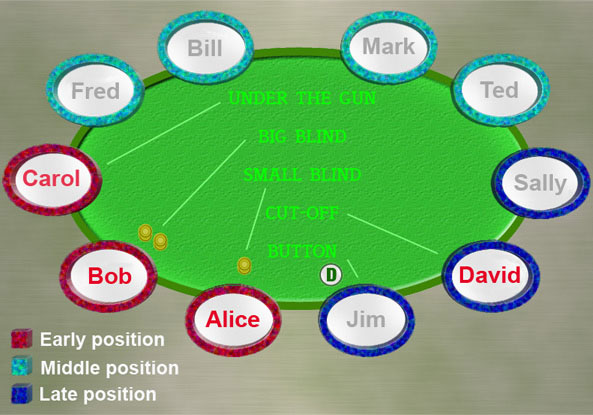Over the last few months I have noticed that both the Burswood thread and the Crown thread have been used more as a notice of trip reports and posting of notable hands rather then any kind of strategy based conversations. Its not that this is a bad thing, but I think that it would be good to have a thread for the posting of strategy related hands and concepts to talk about. This, combined with the fact that I am now on university break from now till the end of Febuary, means I have a decent amount of spare time on my hands to hopefully make this thing work.
My basic plan is to each week (or whenever I get around to it) is to post a topic of the week, and write up my own personal opinion on that topic and its application to live cash games and tournaments. When that is done, hopefully everyone comes out of the woodwork and between all of us we can bounce around enough ideas so that we can all improve our games because of it.
Some of the concepts I was looking at expanding upon, not necessarily in this order but 1) and 2) are probably best to start on.
Live poker basics.
Starting ranges and position including 3betting.
C-Betting.
Turn and River betsizing.
Playing Draws.
OOP play from the blinds and Postflop.
Checkraising vs Donking into the PFR.
Adjusting our play to different types of opponents.
Bluffing and floating.
Value betting thinner.
Tournament play.
Im not claiming to know everything about every topic, or to have solved NL live, but I am really hoping that we can spark some discussion on this forum.
If anyone has any other topics or anything else to mention feel free.
My basic plan is to each week (or whenever I get around to it) is to post a topic of the week, and write up my own personal opinion on that topic and its application to live cash games and tournaments. When that is done, hopefully everyone comes out of the woodwork and between all of us we can bounce around enough ideas so that we can all improve our games because of it.
Some of the concepts I was looking at expanding upon, not necessarily in this order but 1) and 2) are probably best to start on.
Live poker basics.
Starting ranges and position including 3betting.
C-Betting.
Turn and River betsizing.
Playing Draws.
OOP play from the blinds and Postflop.
Checkraising vs Donking into the PFR.
Adjusting our play to different types of opponents.
Bluffing and floating.
Value betting thinner.
Tournament play.
Im not claiming to know everything about every topic, or to have solved NL live, but I am really hoping that we can spark some discussion on this forum.
If anyone has any other topics or anything else to mention feel free.




